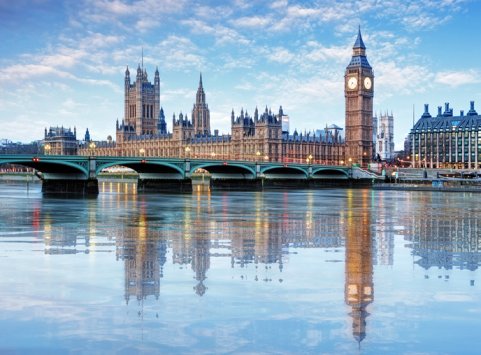Travel Insurance and War vs. Terrorism: Coverage Explained
Find out if AXA travel insurance covers war and terrorism. Learn about exclusions, riders, and how government warnings impact your coverage.
Does Travel Insurance Cover War & Terrorism?
-
Travel insurance often excludes coverage for war but may offer limited coverage for terrorism under specific conditions.
-
War and terrorism are defined differently, with policies treating them separately due to their scale and nature.
-
Some policies offer trip cancellation or interruption coverage if a terrorist event occurs at your destination.
Travel insurance is a way to protect against unexpected events like illness, trip cancellations, or lost luggage. But, when it comes to war and terrorism, travel insurance coverage can be limited and often comes with exclusions and conditions. Understanding the terms and conditions of travel insurance policies on war and terrorism is key to preparing and avoiding unexpected situations.
Defining War and Terrorism in the Context of Travel Insurance
In the context of travel insurance, war means a state of armed conflict between countries, states, or organized groups. This generally means wars that are declared wars, undeclared and even those that are civil in nature. The term war also means large-scale military operations and the use of armed forces, whether global, national, or local.
Terrorism, on the other hand, is the use of violence, threats, or intimidation by individuals or groups, often for political, religious, or ideological purposes. Terrorism may also mean acts done to instill fear or cause destruction or harm to civilians, property, or infrastructure. These acts are usually done to disrupt society, create widespread panic, or draw attention to a particular cause.
War and terrorism are different risks to travelers and the distinction between them is important when considering travel insurance coverage. Insurers differentiate between the two because of their scale, nature and impact. Terrorism is a local event with immediate effects; war is a long drawn out conflict that affects a large area or a whole country.
When buying travel insurance , you need to understand these definitions because policies treat war and terrorism differently. Most standard travel insurance policies have exclusions or conditions for these events as they are risky and can cost insurers a lot of money.
It might also be helpful to know about precise definitions of terms related to war and terrorism are important to interpreting travel insurance policies.
-
War Risk Exclusion: This clause states that any losses, claims, or incidents arising directly or indirectly from war, acts of war, or military conflict are not covered by the policy.
-
Acts of Terrorism: An act of terrorism is defined in travel insurance policies as the unlawful use of violence or threats by individuals or groups to intimidate or coerce a government or civilians.
-
Hostilities: Hostilities means actions of aggression or conflict that are short of a formal declaration of war.
-
Political Unrest: Political unrest is a broad term used to describe civil disorders, protests, riots, or uprisings that disrupt the normal order of society.
-
Force Majeure: In legal terms, force majeure refers to unforeseen circumstances that prevent someone from performing a contract. In travel insurance terms, it means extraordinary events such as war, terrorism, natural disasters, and civil unrest.
-
Terrorism Rider: A terrorism rider is an optional add-on to a standard travel insurance policy that covers acts of terrorism.
Situations Where Travel Insurance Coverage Might Apply
While travel insurance policies have exclusions for war and terrorism, there are situations where coverage may apply depending on the policy and any additional riders or extensions. Here are the scenarios where coverage may be applicable:
Acts of Terrorism in a Covered Destination
Some travel insurance policies may have limited coverage for terrorism-related incidents under the following situations:
-
Trip Cancellation Due to Terrorism: If a terrorist attack occurs at your destination 30 to 60 days before your scheduled departure and you no longer feel safe to travel, some coverage may apply.
-
Trip Interruption Coverage : If an attack occurs while you are already on your trip and you need to cut your trip short, some policies may reimburse you for the unused portion of your trip and additional expenses to get back home or relocate.
-
Terrorist Act Injuries: If you get injured in a terrorist attack while in a covered destination, coverage may apply to terrorist act injuries, including emergency treatment, hospitalization, and evacuation.
Travel Delay or Disruption Due to Terrorism
If there is a terrorist event that causes major disruptions, such as airport or train station closures or other modes of transport, your travel insurance may cover extra expenses. This could be:
-
Accommodation and Food: If your trip is delayed due to a terrorist event and you need to stay in a hotel or eat beyond what was booked, a trip delay benefit may cover these costs.
-
Alternative Travel Arrangements: If your original travel plans are disrupted by terrorism and you need to make alternative arrangements to get to your destination or back home, travel insurance may cover these extra travel costs.
Damage to Accommodation due to Acts of Terrorism
If an act of terrorism damages your pre-booked accommodation, travel insurance may cover alternative arrangements. This could be:
-
Accommodation Costs: If your original booking is damaged beyond repair due to a terrorist event, the travel insurance may cover the cost of staying in another hotel or alternative accommodation.
-
Rebooking Fees: Whether due to damage, safety concerns, or travel restrictions at your original destination, the policy may cover the cost of rebooking accommodation.
Repatriation and Evacuation Coverage
In an emergency, repatriation and evacuation is what gets you out of the affected area:
-
Medical Evacuation or Repatriation : If you get injured in an act of war or terrorism and need medical attention, a travel insurance policy may get you to the nearest hospital or back home for further treatment.
-
Non-Medical Evacuation: In extreme circumstances following a terrorist attack, the travel insurance may evacuate travelers to safer areas, which may involve military transport.
Important Considerations:
While travel insurance may cover terrorism, war coverage is much more limited. Most policies exclude war, especially if it was declared at the time of booking. Travelers must consider adding a war or terrorism rider if traveling to unsafe regions.
The Role of Government Warnings in Travel Insurance Coverage
Travelers should stay informed by checking government travel advisories for their destination regularly as this will impact their decision to travel and their eligibility for coverage.
How Government Travel Warnings Impact Travel Insurance Coverage
Government travel warnings are issued by a country’s foreign affairs or state department and are formal notices to travelers about the safety and security risks in specific regions or countries. Travel insurance providers, including AXA, follow these warnings to determine the coverage, exclusions, and triggers for claims related to dangerous situations.
Here is how government travel warnings impact travel insurance:
Pre-Existing Government Warnings: When you buy travel insurance, check if there are already government warnings in place for your destination. Many policies exclude war, terrorism, or civil unrest if a travel advisory was in place at the time of booking or purchase of your travel insurance.
If a country or region has a “do not travel” advisory in place at the time of booking, most policies will not cover trip cancellations, interruptions, or medical emergencies caused by war or terrorism in that area.
Post-Booking Government Warnings: If a government issues a travel advisory after you have booked your trip and purchased travel insurance, coverage may apply.
Depending on the level of warning and the policy you have bought, the following may apply. If the advisory warns against all travel to the destination due to a sudden outbreak of war or a recent terrorist event, your travel insurance policy may allow you to cancel your trip and get a refund for prepaid, non-refundable expenses like flights, hotel bookings, and tours. It may also cover cutting your trip short and getting home if you are already traveling. It may also cover emergency evacuation or repatriation.
Commonly Excluded Countries or Regions
Some areas are excluded from standard travel insurance because of ongoing problems:
-
Conflict Zones: Countries like Syria, Afghanistan, and Iraq are usually excluded due to high violence.
-
High-Risk Terrorism Areas: Regions with a history of terrorism, like the Middle East and North Africa, may also be excluded.
-
Political Unrest: Countries with political instability, like Myanmar , may be excluded.
Keep up-to-date with government travel advisories to stay covered for any risks. Check travel advisories for your destination before you book to see if there are any threats that will affect your travel insurance. Also, keep abreast with changing conditions. New advisories may affect coverage and evacuation requirements. Heed "Do Not Travel" warnings to avoid claim denial.
Additional Tips for Travelers Concerned About War and Terrorism
Traveling to global destinations is great, but with war and terrorism on the rise, you need to know how travel insurance can help in unexpected situations. Good planning, communication, and preparation can reduce the risks of traveling to high-risk territories. Here is a guide to help you:
Stay Informed
If you are concerned about war and terrorism, stay informed about recent happenings in your destination. Check government travel advisories and news regularly for new risks. Sign up for updates from the foreign office or local embassies before and during your trip.
Choose the Right Coverage
When you buy travel insurance, look for a combination or bundle of policies that includes terrorism coverage. Consider a terrorism add-on or specialized coverage for high-risk areas. Make sure your policy includes trip cancellation, evacuation, and medical coverage for conflict or terrorist events.
Plan for Emergencies
You need to have a plan before you travel. Know the nearest embassy or consulate and their evacuation procedures. Keep a list of emergency contacts, including AXA’s 24/7 emergency number and how to contact local authorities if needed.
Avoid High-Risk Areas
If possible, do not travel to areas of conflict, political unrest, or a history of terrorism. Heed government “do not travel” warnings as ignoring them may void your travel insurance. Always put safety first when planning your itinerary.
Maintain Flexible Travel Plans
Book refundable flights and accommodation or opt for flexible cancellation policies. This gives you options if the situation gets worse or you decide to cancel your trip due to war or terrorism.
FAQs
1. Does travel insurance cover acts of war?
Most standard travel insurance policies exclude war, but some may have special policies or add-ons for coverage up to a certain extent.
2. What is the difference between terrorism and war in travel insurance?
Terrorism is violent acts by non-state actors against civilians; war is declared conflict between nations or groups, often resulting in broader exclusions in policies.
3. Can I buy extra coverage for terrorism or war?
Yes, some insurers offer additional coverage or specific policies for terrorism and war risks, often as add-ons to standard travel insurance.
4. Will my travel insurance cover me if a war breaks out during my trip?
No, travel insurance will not cover war-related events that occur after you purchase the policy, especially if the destination was already a high-risk zone when you bought the policy.
5. What if my destination is added to the high-risk list after I buy travel insurance?
If the destination is added to the high-risk list after you buy travel insurance, coverage may be limited or void.

Travel Assistance Wherever, Whenever
Speak with one of our licensed representatives or our 24/7 multilingual insurance advisors to find the coverage you need for your next trip. Contact Here
Related Articles
Do I need Travel Insurance
How to Buy Travel Insurance
How Much Does Travel Insurance Cost?
Trip Cancellation Explained
When Should I Buy Travel Insurance
Car Rental Collision Damage Waiver
Trip Cancellation Explained
Car Rental Exclusions
Trip Cancellation Illness
Cruise Cancel for Any Reason
Cancel for Any Reason




